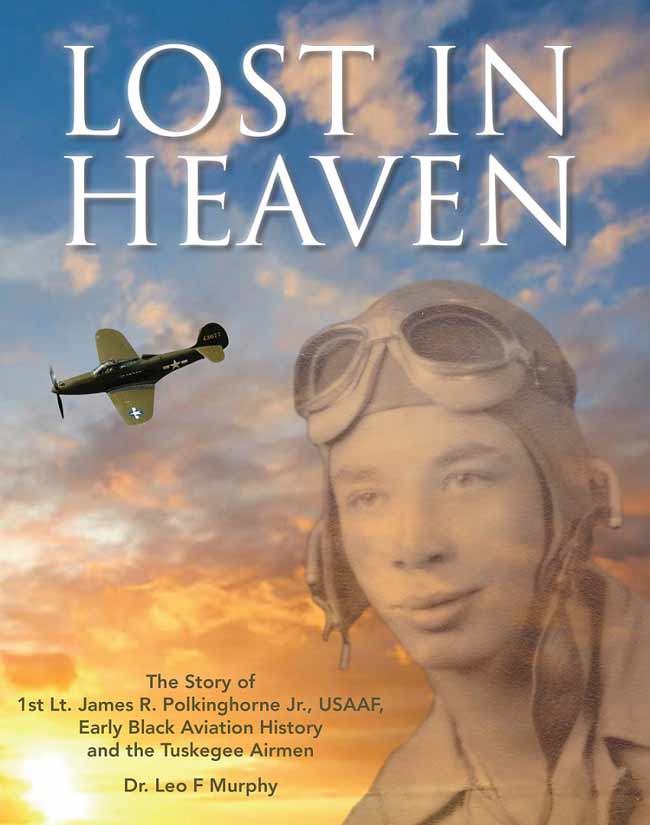Celebrating African-American Contributions to Aviation: New Book Honors Heroic Tuskegee Airman

The book, Lost in Heaven, recounts 1st Lt. Polkinghorne’s journey, from his days as a bellhop at a Pensacola, Fla., hotel, to his valiant service taking enemy fire over the skies of Italy. Murphy, an Embry-Riddle professor of aeronautical science and a 30-year U.S. Navy veteran, calls the book his “passion project.” Working on it over the course of years, he looked to hundreds of magazine clippings, personal diaries and books, as well as to the airman’s sister, Maggie Polkinghorne, to unearth details.
“Very little was known about Polkinghorne’s career, and what little had been published was often filled with errors,” Murphy said. “This inspired me to find out as much as possible about Polkinghorne and to research the history of early black aviation and the Tuskegee Airmen so that I could properly position Polkinghorne’s service within this much broader historical narrative.”
Despite institutionalized racism, some passionate African-Americans refused to be denied the opportunity to enjoy the splendors of flight and, each in their own unconquerable manner, found a way to fly.
In addition to Polkinghorne’s story, Lost in Heaven also chronicles the achievements of early black aviation pioneers, the history of the Tuskegee Airmen, and the struggles the Tuskegee Institute faced in establishing its aeronautical program.
“I knew very little about early black aviation or the Tuskegee Airmen, so all of my research on this topic was a revelation,” Murphy said. “Despite institutionalized racism, some passionate African-Americans refused to be denied the opportunity to enjoy the splendors of flight and, each in their own unconquerable manner, found a way to fly.”
Murphy, who was recently named a Fellow of the Royal Aeronautical Society, lectures on a variety of aviation-history topics, including most recently the enduring mystery of Amelia Earhart’s final flight. He has authored three other books: Flying Machines Over Pensacola: An Early Aviation History from 1909 to 1929, Hagler Field: A History of Pensacola's Airport, and From Cropduster to Airline Captain, the Biography of Captain Leroy H. Brown.
“The story of the Tuskegee Airmen, and the black male and female aviators who preceded them, is one of heartbreaking rejection, indomitable perseverance, and ultimate success in the defense of their country in the skies over Europe,” Murphy said. “I certainly see the potential for an Embry-Riddle course on African-American aviation history and the Tuskegee Airmen.”
Learn more about Lost in Heaven, and watch a video about Polkinghorne’s life and achievements in the Pensacola News-Journal. Buy a copy of Murphy’s latest book from Blue Water Press.

 Mike Cavaliere
Mike Cavaliere